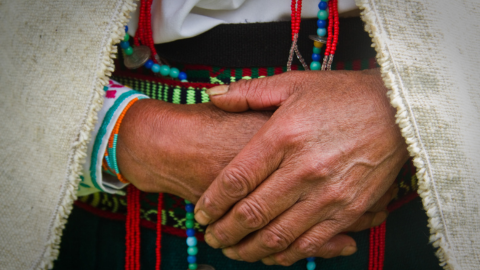Cultural Safety, Indigenous Patients and Physiotherapy

Cultural Safety, Indigenous Patients and Physiotherapy
This course includes
The instructors
Overview
Deliver culturally safe physiotherapy care that respects the identities, histories, and lived experiences of Indigenous clients. This evidence‑informed professional development course equips physiotherapists and rehabilitation clinicians with knowledge and tools to create culturally safe and client‑centred sessions that enhance engagement, reduce harm, and support better health outcomes.
Presented by the Canadian Physiotherapy Association, this course explores the impact of culture, colonization, trauma, and social determinants of health on Indigenous peoples’ experiences with health care and rehabilitation.
Learning Objectives
-
Indigenous Culture, History & Context
Gain insight into Indigenous culture, geography, historical events, and trauma that may influence health status and access to care. -
The Importance of Cultural Safety in Practice
Explore culturally safe assessment and treatment considerations that enhance trust and therapeutic engagement. -
Assessing Pain Within Cultural Contexts
Consider alternative strategies for pain assessment that recognize cultural influences on expression and experience. -
Applying the FIRST Approach
Learn to apply the evidence-informed FIRST Approach through real case scenarios to support culturally aligned care.
Audience
This course is ideal for:
-
Physiotherapists and physiotherapy assistants
-
Healthcare professionals working with Indigenous clients
-
Rehabilitation clinicians seeking to improve cultural safety in practice
-
Anyone committed to culturally respectful, inclusive care
Engagement with Indigenous health concepts is a growing and essential area of practice for clinicians across Canada and beyond.
About the Presenters

Amanda Fortin, MPT, B.P.E.S
Amanda is a clinical physical therapist at an acute care hospital in Saskatoon, Saskatchewan. She completed her B.P.E.S at Brandon University in Manitoba and her M.P.T. at the University of Saskatchewan in 2015. Amanda has extensive experience in inter-professional, student-run clinics providing holistic care to Saskatoon’s most vulnerable populations. She currently chairs the Global Health Division’s Indigenous Health Sub-Committee, contributing to culturally safe physiotherapy practice.

Katherine Harman, PhD, MSc, BSc(PT)
Katherine is an Associate Professor in Dalhousie University’s School of Physiotherapy. She completed a B.Sc. (PT) at the University of Toronto, an M.Sc. in Anatomy/Neuroscience, and a Ph.D. in Psychology/Neuroscience. She teaches pain management to M.Sc. (Physiotherapy) students and leads research on the therapeutic relationship and patient experiences of pain. Her publications appear in Physiotherapy Canada, Physiotherapy Practice, Pain Sciences Division Newsletter, Phenomenology and the Cognitive Sciences, Physiotherapy Theory and Research, Journal of Sport Rehabilitation, and Journal of Interprofessional Care.
Together, Amanda and Katherine bring a combination of clinical expertise, research insight, and leadership in culturally safe care for Indigenous patients.
Accreditation & CEUs
This course is offered by the Canadian Physiotherapy Association and may count toward continuing education requirements, depending on your professional jurisdiction.
The instructors

Material included in this course
-
Course Materials
-
Terminology and Demographics
-
Colonization Timeline
-
Recent Timeline
-
The FIRST Approach
-
Questions
-
Feedback
I'm a member of the Canadian Physiotherapy Association (CPA). What are the discounts available to CPA Members on Embodia?
As part of our partnership with the CPA, we offer its members discounts on courses and Embodia Memberships. Learn more about the partnership on this page.
In order for the discount to be applied, you first need to authenticate your CPA membership. This is an important step as this is how Embodia 'knows' that you are a CPA member.
To authenticate as a CPA member, you need to sign in the CPA portal on this page, sign in to your CPA account, and then click the button on the page.
Please note that your email address on your CPA account must match your email address on Embodia. If needed, you can update your information on Embodia as outlined in this guide.

Is a certificate of completion included with this course?
Once you have completed the course, a certificate of completion (including learning hours and course information) will be generated. You can download this certificate at any time. To learn more about course certificates on Embodia please visit this guide.
This can be used for continuing education credits, depending on your professional college or association. If this course has been approved for CEUs in specific jurisdictions, it will be noted on the course page and CEU information may be added to your course certificate. Please read this guide for more information.